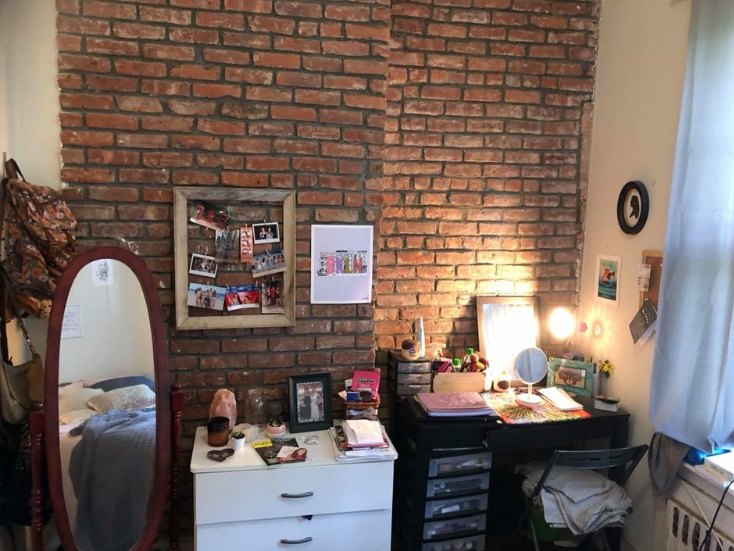

Niki Davis
@nikidavisf
Content Warning: Sexual Assault
Q: Recently, I’ve had a few friends disclose to me that they’ve experienced various forms of sexual violence – given your job description I was wondering if you have any advice in terms of how to create a safe environment to talk about this issue.
A: I remember one of the first times someone disclosed to me that they had been sexually assaulted. It was Halloween, and I was at a really loud concert venue dressed as a giant fried egg (with tiny sperm trying to break into the yolk, obviously). The survivor later mentioned there was something about the situation that made her feel safe. In fact, I was one of the first people she had ever disclosed to.
Interestingly, I think we are often taught that the best places to talk about sensitive issues are quiet, well-lit rooms — while you provide steady eye contact and hugs. In terms of ensuring confidentiality, a private environment makes sense. However, when you are supporting a survivor it is imperative you create an environment that is most comfortable for THEM. And I have found for a lot of people the typical “therapy set-up” may not feel particularly safe.
Personally, I am a big fan of taking an aimless stroll when having all-important life talks. I think it’s because I feel in control of the situation — eye contact can happen, but I don’t feel like the other person is staring into the depths of my soul. If you think that your friend is about to disclose something significant or if they begin to share a traumatic story with you, one of your first questions can be: are you comfortable talking about this here or is there a space that may make you feel more safe/comfortable/chill?
Everyone is different, so the important move here is to make sure they feel in control of their environment. This is because when someone experiences sexual violence, the perpetrator uses their body as a weapon and rids the survivor of their feelings of control and autonomy over their body. As a result, it is imperative that you find ways to give power back, so your friend can begin to feel in control of their environment.
A few specific ways to give power back:
Let your friend lead the discussion and share what they feel like sharing. It is not appropriate to push the topic or ask for details. From experience, I find my desire for more specifics comes from a need to paint a full picture in my head. But remember, this is ALL about your friend. Knowing all the nitty gritty details does not make you a more supportive bud.
Actively listen to your friend and give them your UNDIVIDED attention. Don’t look at your phone or keep glancing at the time. This may be one of the most difficult things your friend has ever told anybody. By being fully present with them, you will make it easier for them to stay engaged in the conversation.
Think about body language and positioning— make sure you are at eye level or in a lower position than your friend, rather than peering down at them. Also, if you are an expressive person like I am, it’s really important you are conscious of what your face is doing. If they are telling you something potentially explicit and gruesome, do what you can to hide your look of shock, as this may freak them out even more. Also, do not touch the person without explicitly asking them beforehand.
There will be moments of silence. It’s okay for you to feel awkward and not know what to say. By just being there and creating a space where your friend feels safe to share, is a HUGE accomplishment. Don’t feel that you have to fill the silences. Having a friend you can sit in silence with is a beautiful thing.
It’s okay to make mistakes and say the wrong thing. We still live in a society that often does not believe and/or blames survivors of sexual violence. As a person living in this culture, it’s possible you may accidentally say something that blames the victim. If you notice this behavior, take responsibility to address what you said and to apologize.
Be aware of how your friend’s identity may impact their experience of violence and their decision regarding what they want to do about it. For example, if you are supporting a friend of color it is important to keep in mind that just because you have had positive (or non-traumatic) experiences with police officers, that does not mean they would necessarily feel safe reporting the crime. Similarly, many trans folks have had negative experiences interacting with hospital staff, so going to the hospital may not be the right move for them. Try to think about how our broader social climate can potentially impact an individual’s experience of violence.
Don’t make it about you, because your friend disclosing to you is 100% about them. Unfortunately, many of us have experienced violence in our lives and perhaps at some point in the conversation it may feel appropriate to share your experience. This is alright as long as: 1) your friend has shared all they wanted to share and you are sharing to help support your friend 2) they directly ask you about your experiences. Of course, we can’t always control our emotions or the timing of things, but having the situation shift to where your friend is now supporting you is not ideal.
Be realistic in terms of your ability to support your friend. Whenever somebody discloses a trauma to me, my initial inclination is to tell them I will be there with them 100% of the time. However, this is simply not realistic. For example, I’m currently on a trip where the WiFI is spotty and I’ve also been supporting a friend through a trauma. Before I left, I was careful to mention that I will be out of town and am unsure of my accessibility over the next week. This is much better than over-promising and not delivering, because this can easily shatter your friend’s trust in you. Think realistically about your time commitments and be clear about how you can continue to support them post chat.
Finally, know that you are an incredible friend for caring enough to ask this question and wanting to support your friend. Secondary trauma is real, so be sure to take care of yourself when supporting the people in your life.
Resources:
Mount Sinai Sexual Assault and Violence Intervention (SAVI)Program
212-423-2140
Mount Sinai offers free counseling for survivors
1-800-656-HOPE
Operates National Sexual Assault Hotline which links survivors to services, representatives speak Spanish as well as English.
@nikidavisf is a full time consent educator and does private sex and relationship coaching sessions. The focus of her Masters was positive sexuality and she has lectured at NYU, The United Nations and many other venues on the subjects of sexual communication, sexual assault intervention and support, and human sexuality.
Contact [email protected] or @nikidavisf with your sex and relationship questions or for more resources.




